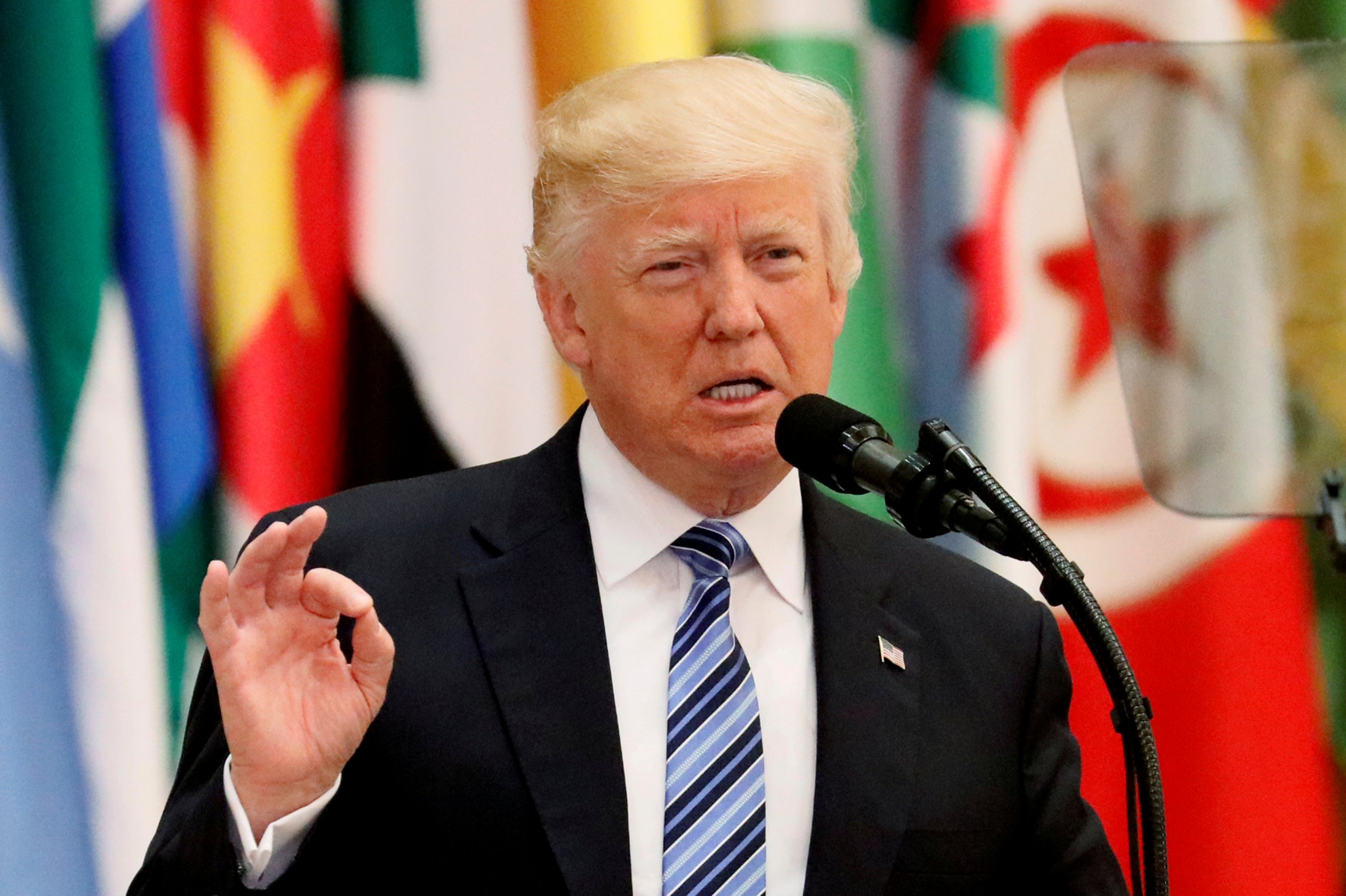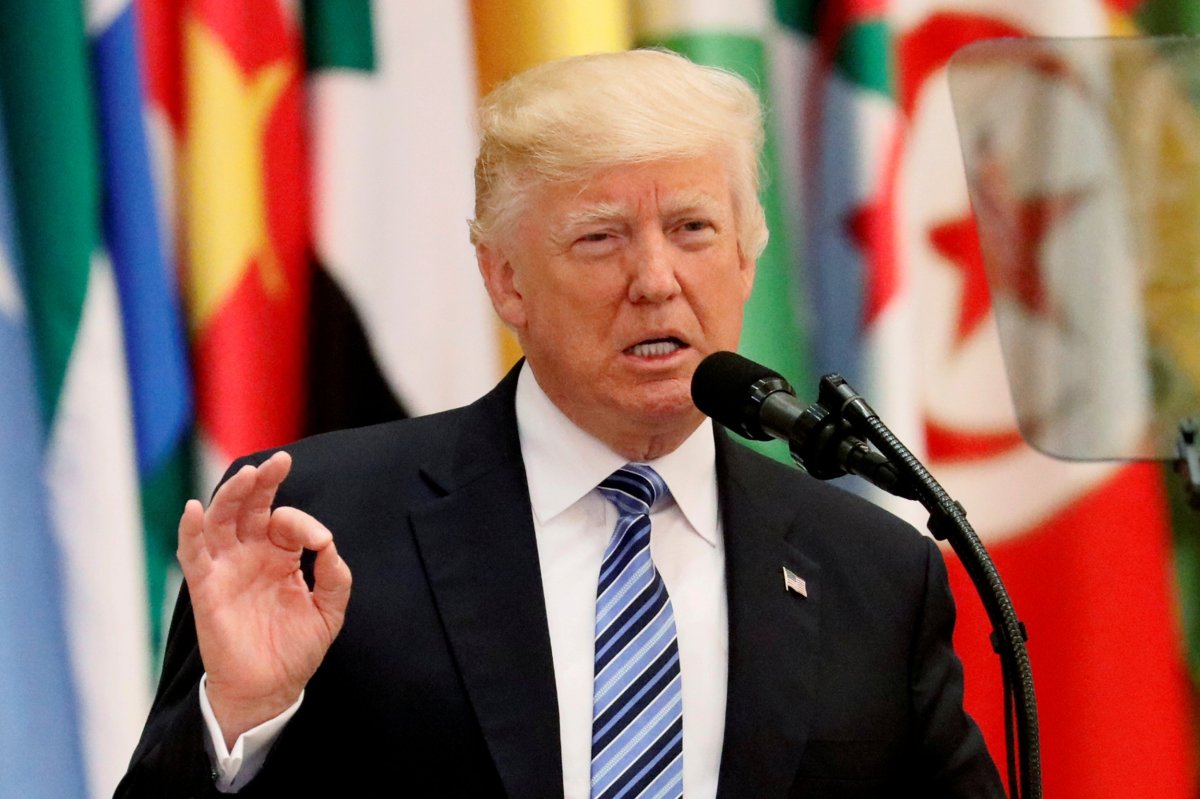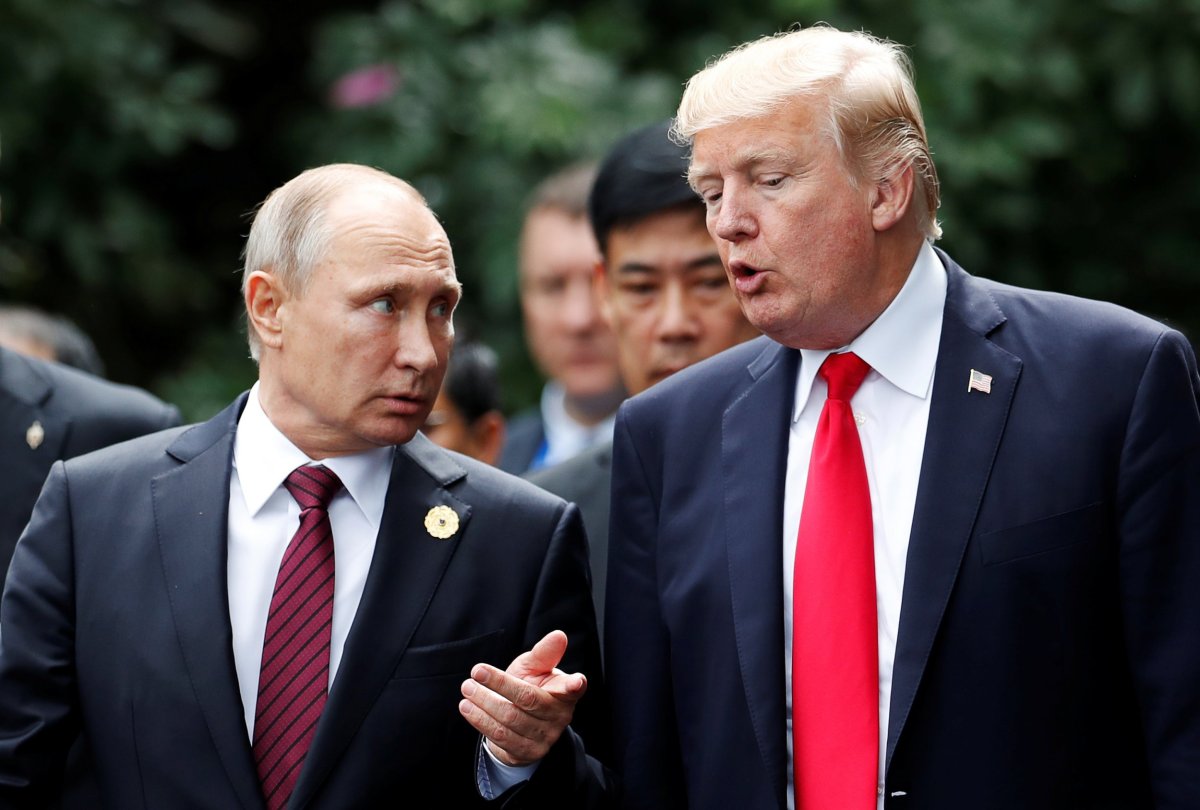
President Donald Trump said Friday he wished the U.S. had never gotten involved in the Middle East in the first place as he announced an upcoming call with the Turkish president to discuss the latest developments in the region.
Trump, who recently claimed credit for victories against militant Islamist insurgencies in Afghanistan, Iraq and Syria, took to Twitter to vent his frustration with Washington's history of prolonged, costly intervention in the restive region. Prior to being elected president last year, Trump was a frequent critic of U.S. foreign policy. He was particularly scathing toward his predecessor, former President Barack Obama, who Trump accused of causing more harmthan good in handling the ongoing conflicts Trump was now trying to tackle himself.
Related: New Cold War? Iran sends warships to Gulf of Mexico
"Will be speaking to President Recep Tayyip Erdogan of Turkey this morning about bringing peace to the mess that I inherited in the Middle East. I will get it all done, but what a mistake, in lives and dollars (6 trillion), to be there in the first place!," Trump tweeted.

From sponsoring the coup that overthrew democratically-elected Iranian Prime Minister Mohammad Mosaddegh in 1953 to ousting Iraqi President Saddam Hussein's armed forces from Kuwait in 1991, the U.S. has an extensive history in interference in the affairs of the Middle East and its immediate neighbors. Active U.S. presence has become a staple of regional politics ever since the 9/11 attacks in 2001, when 19 Al-Qaeda militants managed to kill nearly 3,000 people in New York, Washington and Pennsylvania. A few weeks later, the U.S. embarked on what has since become an unbroken series of conflicts defined by shifting goals and complex alliances.
Less than a month after 9/11, the U.S. entered Afghanistan, where the ultraconservative Sunni Muslim Taliban governmenmt was refusing to hand over the leader of its Al-Qaeda ally, Osama bin Laden. In 2003, the U.S. invaded Iraq, defeating the Iraqi military in 2003 and overthrowing Hussein amid unfounded accusations that he was producing weapons of mass destruction.
In August 2004, Trump told Esquire that the Iraq War was a "mess" and that he could have handled the situation better had he been president. He doubted Iraq would become "a wonderful democracy" Two months later, he told Playboy that Afghanistan would never likely be "a normal, wonderful democratic country."
Under Obama, the U.S. scaled down operations in Iraq in 2011, but once again deployed troops after the Al-Qaeda insurgency brewing there throughout the U.S. occupation evolved into what later became known as the Islamic State militant group (ISIS) and spread to neighboring Syria in 2013. The following year, the U.S. began bombing ISIS in both countries and, under Trump, has expanded efforts to fight jihadis in Afghanistan, Libya, Somalia and Yemen as well.

The U.S.-led coalition against ISIS, alongside campaigns sponsored by Russia and Iran, soon rolled back ISIS gains in Iraq and Syria. Trump's administration oversaw some of the most violent, intense engagements as the U.S.-backed offensives reached major cities such as Mosul in Iraq and Raqqa in Syria, both of which have been retaken from ISIS in recent months.
While Trump has been explicit in his rejection of Iran's expanding role in Middle East affairs, he has pledged to work with Russia to end the long-running conflict in Syria between the military, rebels, jihadis, Kurds and other factions. Turkey, a U.S. ally and NATO member, has supported efforts to overthrow Syrian President Bashar al-Assad, but has joined Russia and Iran in their latest peace efforts as the pro-government axis outpaced its opponents.
Uncommon Knowledge
Newsweek is committed to challenging conventional wisdom and finding connections in the search for common ground.
Newsweek is committed to challenging conventional wisdom and finding connections in the search for common ground.
About the writer
Based in his hometown of Staten Island, New York City, Tom O'Connor is an award-winning Senior Writer of Foreign Policy ... Read more
To read how Newsweek uses AI as a newsroom tool, Click here.








